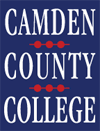
Photojournalism
|
If your CCC Library Card Barcode is not working, please complete the application. |
Quick Links
Semester Hours
| Monday to Thursday |
8:30am - 8:30pm |
| Friday | 8:30am - 4:30 pm |
| Saturday | 10:00am - 4:00pm |
| Sunday | CLOSED |
For holiday and break hours (including summer schedule), click here
| Importance of Images |

"I want to put a human face on situations that would otherwise remain abstract." James Nachtwey and the importance of images

Adam Ferguson, Afghanistan, 2009
"As a photographer, you feel helpless. Around you are medics, security personnel, people doing good work. It can be agonizingly painful to think that all you're doing is taking pictures." Photograph: Adam Ferguson/VII Network
| Useful Websites |
| Aperture Magazine: Dedicated to Promoting Photography |

The Aperture Foundation is a nonprofit foundation dedicated to promoting photography. The foundation publishes Aperture, a journal that is published four times a year.
Use the links below to find issues of Aperture in print and online.
| Sample of CCC Library eBooks |
| Sample of CCC Library Books |
| Photojournalism Ethics |
Visual journalists and those who manage visual news productions are accountable for upholding the following standards in their daily work:
Ideally, visual journalists should: